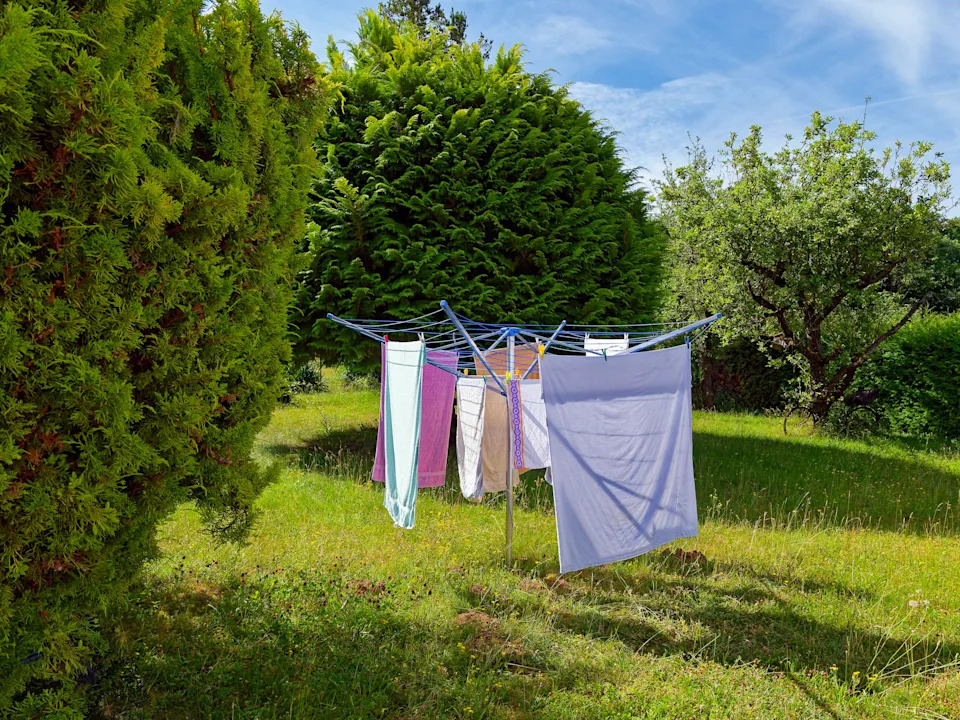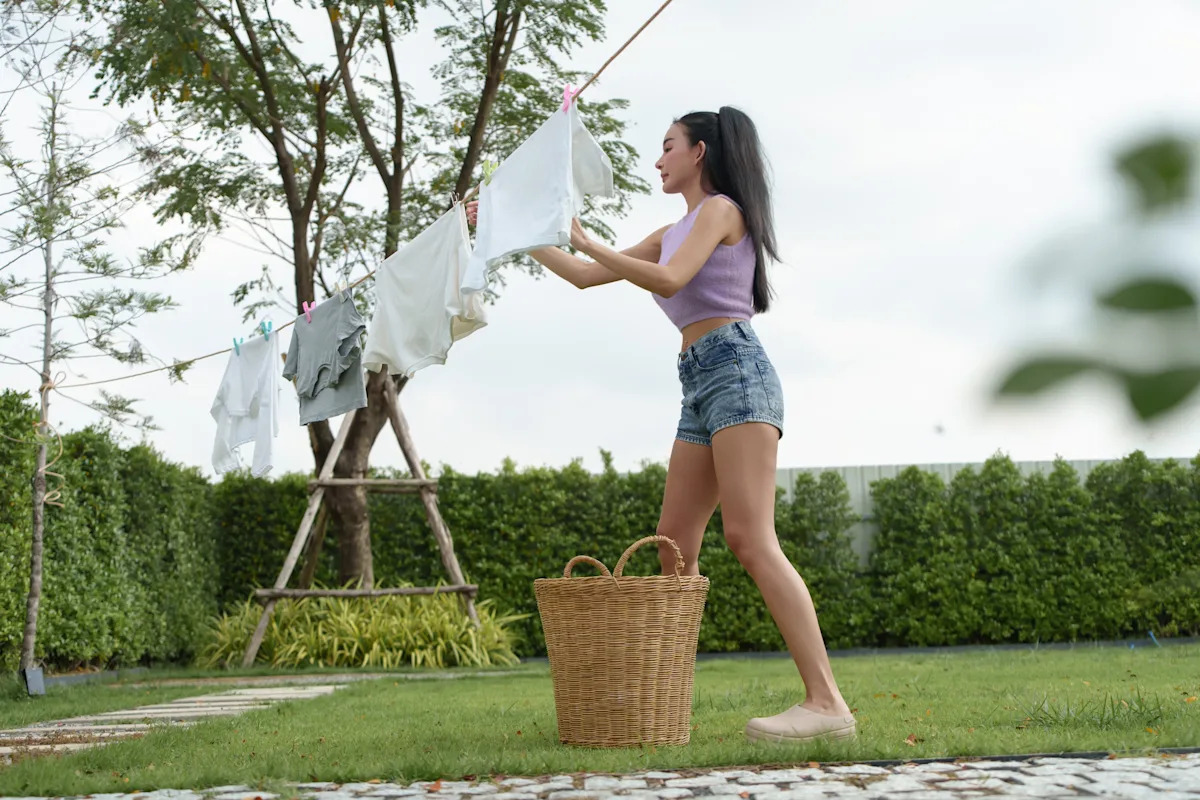Every country has its own ideas about what it means to live frugally. From stretching groceries to reusing household items, what’s considered normal in one place can seem unusual in another. A recent online thread sparked a discussion about frugal habits other countries still value but Americans have mostly forgotten.
 The story
The story
Recently, someone asked on Reddit about the frugal habits that are common in other countries but not in the United States.
You don’t need seven different sprays for every surface in your kitchen/bathroom.
Buying a whole chicken and breaking it down is cheaper than buying pre-cut pieces.
Buying produce when it’s in season and cheap, then pickle/dehydrate/ferment it to preserve it for the winter. Many cultures prepare six or more months of produce during the summer.
People who live in several countries or have extended families started to share frugal habits that are normal in their home countries but seen as ‘unusual’ in the U.S.
The reactions
It might come as a surprise, but in most parts of the world, people naturally dry out clothes instead of using a machine.
One person who adopted this practice mentioned: “Line drying clothes in the sun rather than using a dryer because it’s not standard to have a dryer in most places around the world. I set this up on the balcony of my American home, and it preserves my clothes and saves energy!” Not only does this method extend the life of the fabric, but it also eliminates the electricity cost to run these power dryers, saving significant dollars every year.

Someone mentioned how Americans spend so much on housing, which is rare in other parts of the world. They said, “The big one is having multi-generational households. It’s a far bigger saving than anything you can list.” Another person added: “Stay in a house with family/close friends & pool resources and skills together, working towards a goal where everyone benefits.”
Most families in the United States spend about one-third of their income on mortgage payments. Outside the US, housing expenses are treated differently. In countries across Asia, Latin America, and Southern Europe, families live together under a single roof, which helps divide the costs and save money. The downside, of course, is the lack of privacy, but for many, it is worth it in this economic climate.

Similarly, American kitchens mostly run on single-use materials like paper towels, plastic wrap, disinfecting wipes, and other similar products. However, people from other countries consider them a waste. One person mentioned, “Not a ton of single-use disposable things in the kitchen, like cleaning wipes (use rags), paper towels (use rags), ziploc bags (use reusable tupperware), clingwrap (put the thing in a bowl with a small plate/lid on top).” European and Asian households reuse kitchen materials, which helps not only reduce waste but also save money.
Transportation costs reveal yet another big difference. Car ownership in the US averages $12,000 annually when you factor in payments, insurance, gas, and maintenance. Many people consider this a huge expense, but for Americans, it’s just another necessary expense they cannot ignore. One commenter said, walking instead of driving may be considered frugal in the U.S. “Walk instead of taking the car.” Another added, “I wish walkable cities were a thing in the US. The nearest grocery store is 15 miles away.”

In much of Europe, people prefer to walk (or take public transport) rather than drive because streets are often narrow and finding a spot to park is difficult. While in the US, people generally prefer to drive from one point to another, even when running errands. Europeans who walk or bike for daily errands avoid much of that cost entirely.
While meat is treated as a luxury in most parts of the world, especially Asia, it is a daily staple for Americans. One user reported the impact: “Skip the meat, add in beans and tofu. It’s cut my bill at least 40%.”
The American diet mainly consists of protein, which is expensive. Vegetarian options like tofu, lentils, and chickpeas all deliver protein at a fraction of the price. Replacing expensive meat with protein-rich vegetarian options can drastically reduce meal costs.

One commenter shared a frugal habit that is rarely practiced in America: “Plug in air fresheners, spray air freshener, and scented dryer beads. Unnecessary spending is potentially harmful to the health of your family. What are you breathing in when you spray those chemicals? Open a window. Wash your floors. Smoke outside. Put blankets down where pets sleep and wash them regularly. So many things we can all do instead of spraying artificial crap into the air we breathe.”
The air freshener market in the US accounted for $15.75 billion in 2024, and it’s only expected to increase in the coming years. Air fresheners are seemingly everywhere, from restrooms to homes to even cars. People buy them to make their spaces smell nice, but they are a source of indoor air pollution. The safer alternatives include opening the window for fresh air and ventilation, as practiced in other countries, or using safe scents free of harmful chemicals.
Many people pointed out how easy it is to overspend in the U.S. That’s not the case in many other countries, where there’s less pressure to constantly upgrade or replace things. One user shared, “Not buying things you don’t need.” In countries where consumer culture is less aggressive, people buy less because there is less pressure to consume. On the contrary, Americans live in a capitalistic culture where success is often perceived as making enough money to buy expensive cars, houses, and other branded items.

In much of Europe and Asia, credit cards are far less common. People use debit cards or cash. One person shared what others might consider frugal, but it’s not. They said, “Don’t rely on/use credit cards. We use credit cards in our households for building good credit only, and pay off each month. If we have to carry a balance for something big, we return to find – 0% for a six-month type card and pay the appropriate amount each month, and if we can afford it, we don’t get it.”
Many others agreed, saying that using only the money you already have helps cut impulse spending and keeps financial records clean. However, it’s quite the opposite in the United States, where it’s common to rely on credit cards for the simplest of purchases, such as buying groceries, fuel, or even eating out.
One Italian-based user listed their household norms: “Italy -line drying winter and summer. Making coffee in a moka machine uses less coffee than other methods. Eating fruit and veg only in season. Shopping at the local covered markets rather than the supermarket. Eating meat rarely, but tons of pasta and grains. Not using AC or heating excessively.”
In the US, these habits may seem frugal or old-fashioned to many people. But in many other parts of the world, living simply and avoiding unnecessary spending is more practical.

Some commenters mentioned the tipping culture, which is less common in other countries, may be viewed as frugal by Americans. “No tip, they just have it built into the price of the meal,” one person shared. Americans defend tipping as rewarding good work, but it enables restaurants to pay workers less and transfer the cost onto diners.
In most countries, people reuse items like glass jars or takeout boxes as storage containers. It is practical and helps reduce waste; however, in the US, the habit is considered frugal. One commenter shared: “Reusing bottles and containers and bags. We call it frugal in the US. The rest of the world calls it just life.”
Throwing away a perfect container adds to waste. Still, don’t think twice about tossing jars, bottles, or takeout boxes that could easily be washed and used again. Americans often spend more replacing things instead of reusing them, because it is easier or more “normal” to buy new.
The takeaway
America’s expensive lifestyles are simply due to habits formed by a culture of abundance. But with a bit of change in perspective and learning valuable frugal habits, Americans can significantly cut their living costs while also reducing waste.

